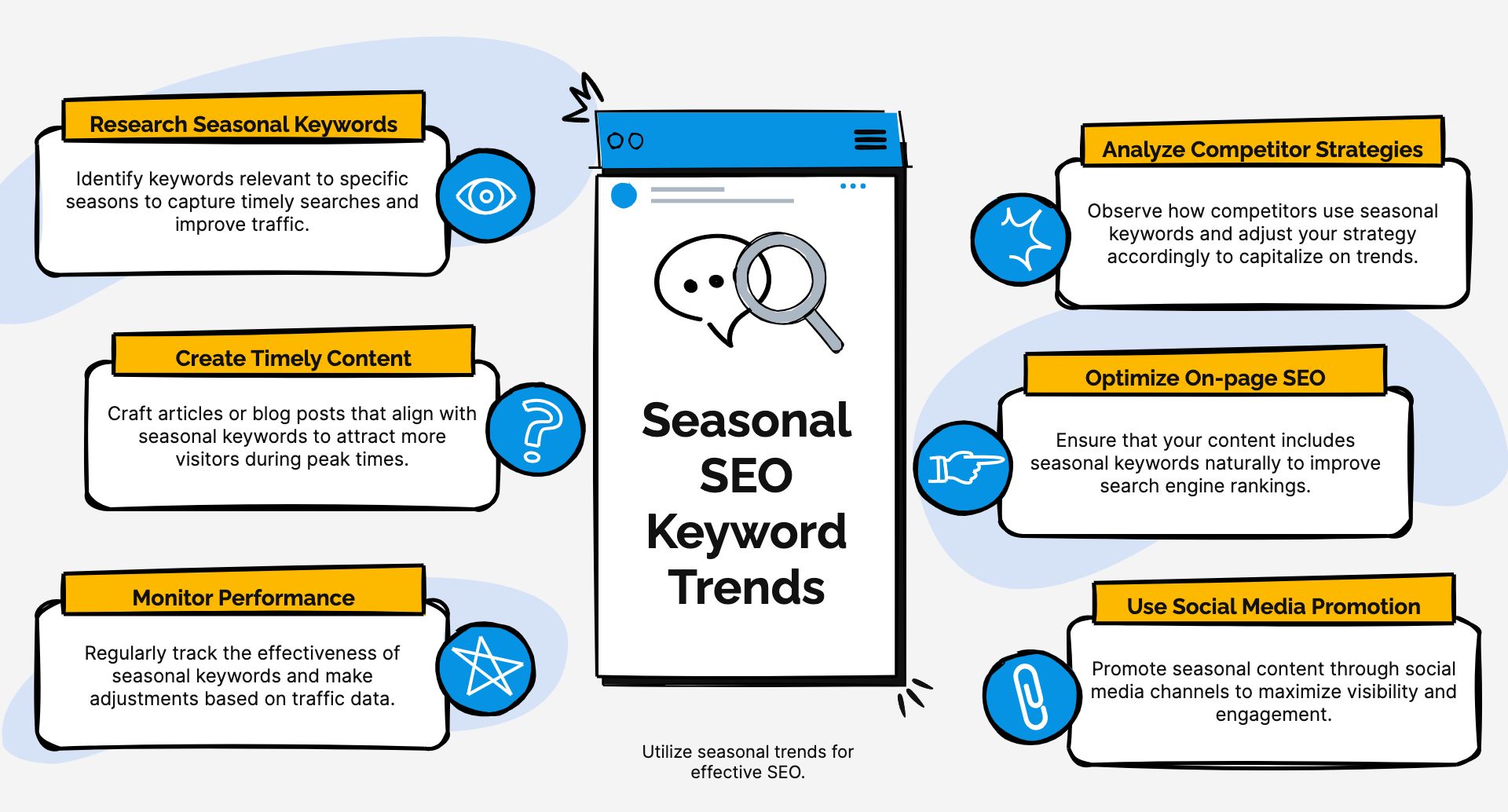Seasonal and local keyword targeting for travel businesses involves strategically using keywords that reflect both the time of year and geographic location to maximize search visibility, attract targeted traffic, and increase bookings.
Seasonal keyword targeting means optimizing content around keywords tied to specific travel seasons, holidays, or events, such as “family summer vacation destinations,” “romantic getaways for Valentine’s Day,” or “winter ski trips.” This approach aligns your content with user search intent during peak travel periods, improving rankings and click-through rates when demand is highest. Starting seasonal campaigns well in advance (2-4 months) is crucial to gain ranking momentum before the season peaks.
Local keyword targeting focuses on incorporating geographic modifiers into keywords to capture users searching for travel services near them or in specific destinations. Examples include “travel agent [city],” “vacation packages [city],” or “best travel agent in [city] for honeymoons.” This strategy is essential for travel agencies competing in local markets and helps dominate “near me” searches, which have high conversion potential.
Combining seasonal and local keyword targeting can be highly effective. For instance, a travel business might target “summer vacation packages in Miami” or “winter holiday travel deals in Denver.” This dual focus captures users with both seasonal intent and local relevance, driving highly qualified traffic.
Key best practices include:
- Conducting thorough keyword research using tools like Google Trends to identify seasonal spikes and local search volumes.
- Creating dedicated landing pages or blog content for seasonal offers and local attractions to improve relevance and SEO performance.
- Using long-tail keywords that combine seasonality and locality for higher conversion rates, such as “best family summer vacation spots near Chicago” or “off-season travel deals in New England”.
- Optimizing Google Business Profiles and local listings with seasonal promotions and location-specific keywords to enhance local SEO.
- Timing content updates and campaigns to start well before the relevant season or holiday to build ranking and visibility.
In summary, travel businesses should leverage seasonal keywords to align with peak travel interests and local keywords to capture geographically targeted searches, combining both to maximize SEO impact and attract ready-to-book travelers.





